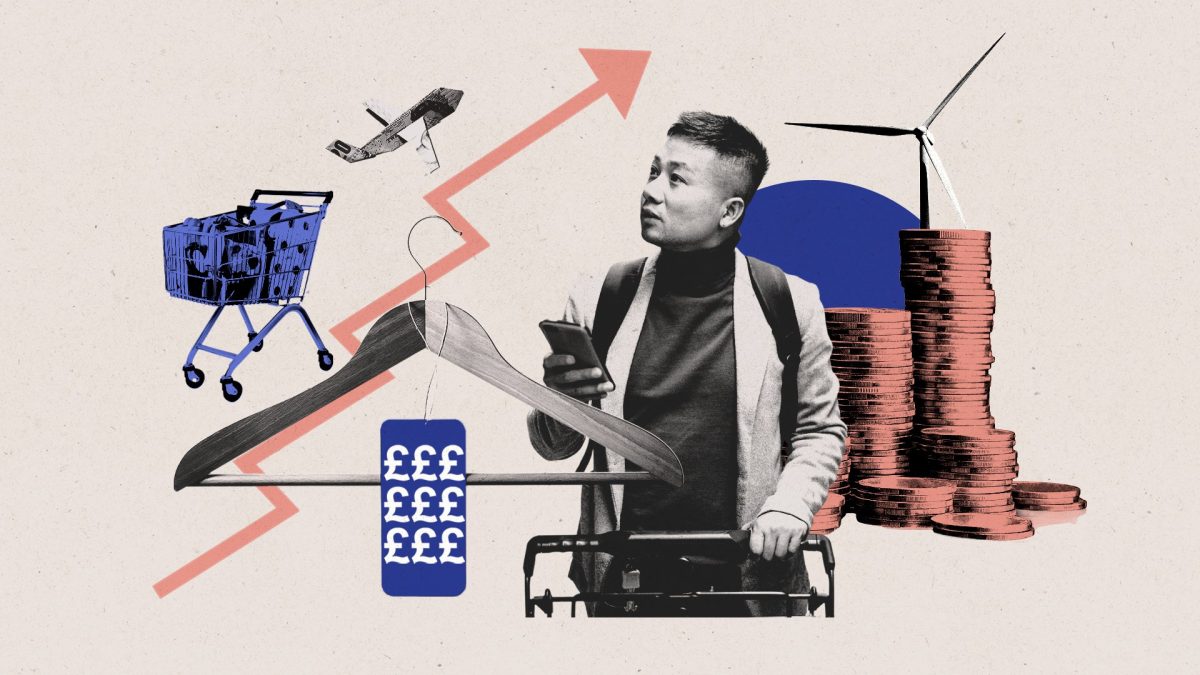Lifestyle
Inflation Holds Steady at 3.8%: Impact on Savings and Mortgages

Inflation remained unchanged at 3.8% in the year leading up to September 2023, according to the latest figures from the Office for National Statistics (ONS). This rate continues to exceed the Bank of England’s target of 2%, reflecting ongoing pressures from rising costs in clothing, fuel, and airfares. Economists had anticipated this stability, attributing it to persistent inflationary trends.
What does the future hold for inflation? While many analysts expect inflation to remain elevated through the remainder of the year, some, such as Capital Economics, suggest it may have peaked in September. The recent 2% reduction in the Ofgem utility price cap on October 1, along with a projected 3.4% decrease in fuel prices due to falling oil costs, could alleviate some financial pressures in the coming months. Conversely, economist Andrew Sentance warns that inflation could rise above 4%, potentially reaching 5%.
The Bank of England anticipates that inflation will remain above its target level for an extended period, likely until 2027. This sustained inflation has implications for interest rates, which are currently set at 4% following a reduction in early August. Although the prospect of further interest rate cuts later this year exists, the timeline remains uncertain, with many analysts predicting the next adjustment may not occur until 2026.
Effects on Mortgages, Savings, and Pensions
Inflation’s impact on personal finance is significant, particularly concerning mortgages. While inflation itself does not directly dictate mortgage rates, it influences the Bank of England’s base rate, which in turn affects various mortgage products. Tracker and standard variable mortgages adjust in line with interest rate changes, while fixed-rate mortgages are guided by long-term predictions of base rate movements.
Current forecasts suggest that mortgage rates may experience modest declines this year. However, if inflation continues to rise without corresponding interest rate cuts, this outlook may shift.
For savers, high inflation is detrimental as it diminishes the value of funds held in bank accounts. Savings rates have trended downward in recent months, although opportunities exist for higher-yield accounts. For instance, Chase offers a current account with an interest rate of 4.5%, above inflation, albeit with a temporary bonus. Similarly, Trading 212 provides a cash ISA account with a rate of 4.51%, also featuring a temporary bonus rate.
Pensioners face unique challenges due to inflation. For example, a 67-year-old planning to retire with a pension pot of £87,500 could see the nominal value increase to £90,125 if inflation runs at 3% and investment growth at 3%. However, in real terms, the purchasing power remains unchanged because inflation erodes potential growth.
Additionally, the implications of inflation extend to annuities, which provide guaranteed annual incomes in retirement. Falling interest rates can reduce the annual income available through annuities, impacting retirees’ financial security.
As inflationary pressures continue, both individuals and financial institutions must navigate a complex landscape, balancing savings, mortgages, and pensions against the backdrop of fluctuating economic conditions.
-

 Health3 months ago
Health3 months agoNeurologist Warns Excessive Use of Supplements Can Harm Brain
-

 Health3 months ago
Health3 months agoFiona Phillips’ Husband Shares Heartfelt Update on Her Alzheimer’s Journey
-

 Science1 month ago
Science1 month agoBrian Cox Addresses Claims of Alien Probe in 3I/ATLAS Discovery
-

 Science1 month ago
Science1 month agoNASA Investigates Unusual Comet 3I/ATLAS; New Findings Emerge
-

 Science4 weeks ago
Science4 weeks agoScientists Examine 3I/ATLAS: Alien Artifact or Cosmic Oddity?
-

 Entertainment4 months ago
Entertainment4 months agoKerry Katona Discusses Future Baby Plans and Brian McFadden’s Wedding
-

 Science4 weeks ago
Science4 weeks agoNASA Investigates Speedy Object 3I/ATLAS, Sparking Speculation
-

 Entertainment4 months ago
Entertainment4 months agoEmmerdale Faces Tension as Dylan and April’s Lives Hang in the Balance
-

 World3 months ago
World3 months agoCole Palmer’s Cryptic Message to Kobbie Mainoo Following Loan Talks
-

 Science4 weeks ago
Science4 weeks agoNASA Scientists Explore Origins of 3I/ATLAS, a Fast-Moving Visitor
-

 Entertainment4 months ago
Entertainment4 months agoLove Island Star Toni Laite’s Mother Expresses Disappointment Over Coupling Decision
-

 Entertainment3 months ago
Entertainment3 months agoMajor Cast Changes at Coronation Street: Exits and Returns in 2025









